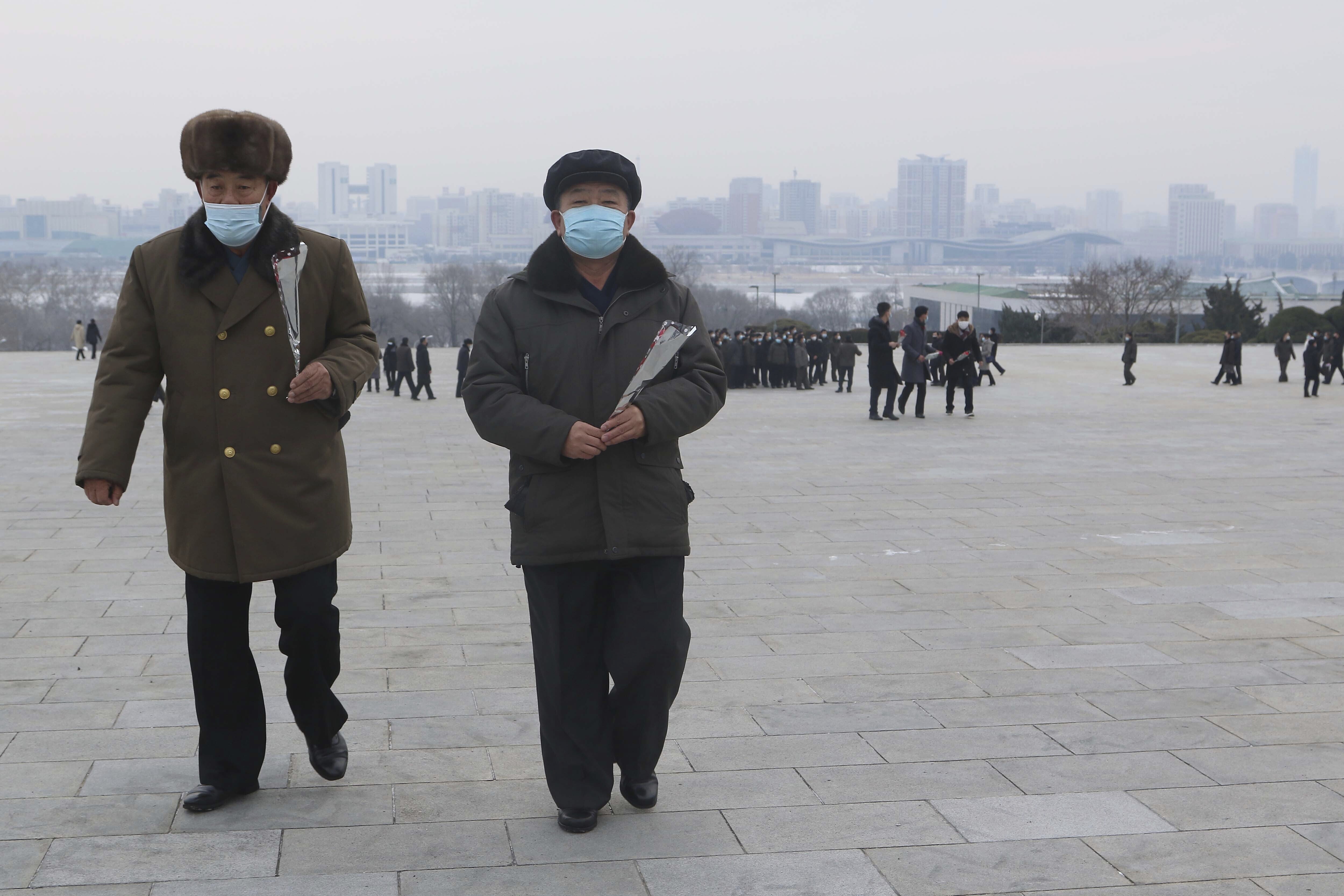Instant Opinion: Boris Johnson is telling the working class: ‘good luck out there’
Your guide to the best columns and commentary on Tuesday 12 May

A free daily email with the biggest news stories of the day – and the best features from TheWeek.com
You are now subscribed
Your newsletter sign-up was successful
The Week’s daily round-up highlights the five best opinion pieces from across the British and international media, with excerpts from each.
1. Owen Jones in The Guardian
on what working people are hearing from the PM
The Week
Escape your echo chamber. Get the facts behind the news, plus analysis from multiple perspectives.

Sign up for The Week's Free Newsletters
From our morning news briefing to a weekly Good News Newsletter, get the best of The Week delivered directly to your inbox.
From our morning news briefing to a weekly Good News Newsletter, get the best of The Week delivered directly to your inbox.
Boris Johnson’s message to the working class: good luck out there
“Boris Johnson’s televised address left a nation baffled, but there was one message the clarity of which should not be doubted. If you are a middle-class professional, then you can keep safely working from home, and whether you venture outside for leisure, exercise or sunbathing is entirely up to you. For everybody else, it’s time to get back to work, and best of luck! An alliance of Tory libertarians, who believe in freedom for those can afford it, and wealthy Conservative backers, who are rather more interested in profit margins than the lives of vulnerable and older people, have grown tired of lockdown, quite unlike the public as a whole. And so Johnson’s messy compromise, as mentioned in his Sunday night address to the nation, is to ‘actively encourage’ a return to work for those who cannot do so from home: factory workers, but not managers; cleaners, but not accountants. Coronavirus is a class issue.”
2. Rachel Sylvester in The Times
on how Johnson’s virus equations can’t hide muddled messaging
A free daily email with the biggest news stories of the day – and the best features from TheWeek.com
Boris Johnson is trying to blind us with science
“Boris Johnson appeared to be trying to channel Albert Einstein in his address to the nation on Sunday night. He produced an equation for the coronavirus threat that echoed the famous formula E = mc2. But the prime minister’s equation: C (the Covid alert level) = R (the rate of infection) + N (the number of infections) was gobbledegook. If C is a number between 1 and 5 then it cannot be calculated by adding the confirmed cases (more than 223,000) to the reproductive rate (which is running at just below one). Sir David Spiegelhalter, professor of the public understanding of risk at Cambridge University, talked at the weekend about the ‘number theatre’ used by Downing Street to manipulate the message rather than to inform people about what’s going on. This was performance algebra. Mr Johnson was using phoney science to give a veneer of objectivity to a finely balanced political judgment. Instead of admitting that the risk assessment would ultimately be made by the government, on the basis of scientific advice, he suggested that there will be a calculation overseen by a new, authoritative-sounding ‘Joint Biosecurity Centre’. It was absurd, and summed up a TV address that created more confusion than clarity.”
3. The Daily Telegraph editorial
on how the prime minister’s exit strategy is sound, but needs fleshing out
We have a plan, but we need more clarity
“The Government is right to seek a new language for dealing with the pandemic because the British are the most resistant in the world to easing restrictions on their liberty. Mr Johnson knows he has to take the country with him out of the lockdown, just as they followed him into it. The new Stay Alert approach was lambasted by the Government’s detractors as too risky, but the lockdown cannot continue for ever and all the Prime Minister is urging people to do is use their common sense... But the ambiguities need to be cleared up. Uncertainty is a dead end for businesses, who are no clearer about their futures than they have been for the past seven weeks. Families need to know whether they can reunite, something Mr Johnson did not address, but which may be answered in the Commons today.”
4. Sean O’Grady in The Independent
on how mid-morning TV reflects changing public opinion
Now Phillip Schofield is attacking his lockdown exit plan on This Morning, Boris Johnson really is in trouble
“I must admit that, charming as he is, I’d never previously looked on the television personality Phillip Schofield as some sort of destructive political force. Advertising car insurance through the medium of fluffy kittens, yes. Joshing gently with a shaking of heads with Holly Willoughby on This Morning about the latest adultery-based plot twist on Emmerdale, for sure. But eviscerating the reputation of a serving prime minister? Well, not so much. Yet, with the caption ‘CONFUSED ABOUT LOCK DOWN? SO ARE WE’ on screen, Schofield delivered a series of devastating attacks on Boris Johnson’s ‘road map’ for getting out of lockdown. And each criticism carried all the more menace for being expressed in usual, conversational tones. He and his co-host gave expression to the authentic voice of Everywoman and Everyman. ‘The problem is, I think we’re all just about holding on, but when there’s this level of confusion, it sort of knocks you back...’ Willoughby began. ‘That’s the problem, we now lack clarity,’ Schofield replied, in this deadly duet of character assassination.
–––––––––––––––––––––––––––––––For a round-up of the most important stories from around the world - and a concise, refreshing and balanced take on the week’s news agenda - try The Week magazine. Start your trial subscription today –––––––––––––––––––––––––––––––
5. Woodrow Hartzog in the Los Angeles Times
on coronavirus tracking and the future of people watching
Coronavirus tracing apps are coming. Here’s how they could reshape surveillance as we know it
“This technology, once deployed, will not be ‘rolled back.’ We are repeatedly told that contact tracing apps and COVID-19-related surveillance are temporary measures for use until the pandemic passes. That’s likely to be a fantasy. Surveillance inertia is remarkably difficult to resist. Norms get set and practices and tools become entrenched. And who can say when this will wind down? We’re still dealing with the supposedly temporary surveillance authorized almost 20 years ago in the wake of after 9/11. Rollbacks are rare and highly unlikely because the tools we build today will create a path dependency that will shape our future data and surveillance practices... Good privacy engineering is one piece of the puzzle for contact tracing apps. Perhaps even more difficult is weighing the long-term consequences of how these tools will be used after the pandemic ends.”
-
 James Van Der Beek obituary: fresh-faced Dawson’s Creek star
James Van Der Beek obituary: fresh-faced Dawson’s Creek starIn The Spotlight Van Der Beek fronted one of the most successful teen dramas of the 90s – but his Dawson fame proved a double-edged sword
-
 Is Andrew’s arrest the end for the monarchy?
Is Andrew’s arrest the end for the monarchy?Today's Big Question The King has distanced the Royal Family from his disgraced brother but a ‘fit of revolutionary disgust’ could still wipe them out
-
 Quiz of The Week: 14 – 20 February
Quiz of The Week: 14 – 20 FebruaryQuiz Have you been paying attention to The Week’s news?
-
 ‘Irony’ as Zoom calls staff back to office
‘Irony’ as Zoom calls staff back to officefeature And other stories from the stranger side of life
-
 The U.S. veterinarian shortage crisis
The U.S. veterinarian shortage crisisSpeed Read With an anticipated shortage of 15,000 vets by 2030, it will be harder to get care for pets
-
 Boris Johnson shocks UK by resigning from Parliament
Boris Johnson shocks UK by resigning from ParliamentSpeed Read
-
 Company teaches mask-wearers to smile again
Company teaches mask-wearers to smile againfeature And other stories from the stranger side of life
-
 Bees delay flight for three hours
Bees delay flight for three hoursfeature And other stories from the stranger side of life
-
 Global happiness has been 'remarkably resilient' over the past three years
Global happiness has been 'remarkably resilient' over the past three yearsfeature
-
 Ministers considered killing all cats during pandemic
Ministers considered killing all cats during pandemicfeature And other stories from the stranger side of life
-
 North Korea imposes 5-day lockdown on capital to fight 'respiratory illness'
North Korea imposes 5-day lockdown on capital to fight 'respiratory illness'Speed Read